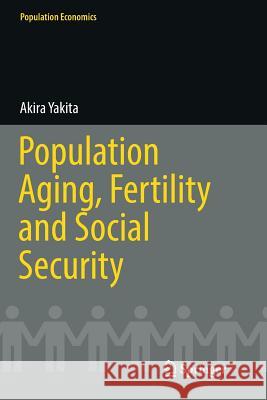Population Aging, Fertility and Social Security » książka
topmenu
Population Aging, Fertility and Social Security
ISBN-13: 9783319837901 / Angielski / Miękka / 2018 / 237 str.
Kategorie:
Kategorie BISAC:
Wydawca:
Springer
Seria wydawnicza:
Język:
Angielski
ISBN-13:
9783319837901
Rok wydania:
2018
Wydanie:
Softcover Repri
Ilość stron:
237
Waga:
0.36 kg
Wymiary:
23.39 x 15.6 x 1.37
Oprawa:
Miękka
Wolumenów:
01
Dodatkowe informacje:
Wydanie ilustrowane











